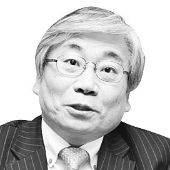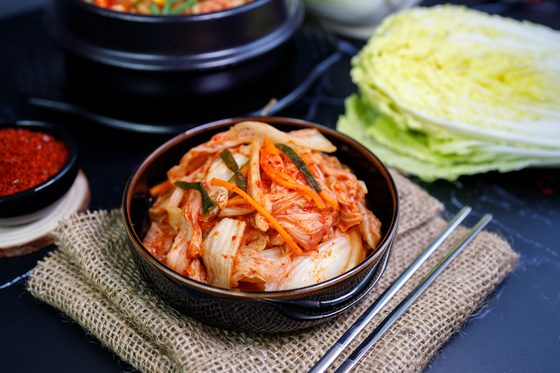Set a Chinese name for kimchi
전체 맥락을 이해하기 위해서는 본문 보기를 권장합니다.
The state-owned tabloid Global Times in late November reported that paocai — a type of pickled cabbage dish in China — had gained certification from the International Organization for Standardization (ISO) and dealt a "disgrace" to kimchi-eating Koreans, touting the ISO listing as an "international standard for the kimchi industry led by China." But the BBC clarified the misrepresentation, as the ISO listing clearly said, "This document does not apply to kimchi."
Under Chinese regulation, every written word must be in Chinese in China. The Chinese differentiate kimchi with paocai as "Korean or spicy paocai."
이 글자크기로 변경됩니다.
(예시) 가장 빠른 뉴스가 있고 다양한 정보, 쌍방향 소통이 숨쉬는 다음뉴스를 만나보세요. 다음뉴스는 국내외 주요이슈와 실시간 속보, 문화생활 및 다양한 분야의 뉴스를 입체적으로 전달하고 있습니다.

Park Jong-cheol
The author is a professor of Sunchon University and the president of the Kimchi Association.
A Chinese ambassador to the United Nations (UN) recently uploaded a posting about his experience of making kimchi. Although he did not stress the recipe was of Chinese origin, his stunt on social media raises questions about the motivation since Chinese media have been building up hype about kimchi as an ancient Chinese dish.
The state-owned tabloid Global Times in late November reported that paocai — a type of pickled cabbage dish in China — had gained certification from the International Organization for Standardization (ISO) and dealt a “disgrace” to kimchi-eating Koreans, touting the ISO listing as an “international standard for the kimchi industry led by China.” But the BBC clarified the misrepresentation, as the ISO listing clearly said, “This document does not apply to kimchi.”
The Korean Agriculture Ministry refuted the report by highlighting that the ISO document does not apply to Korean kimchi.
The feud has raised awareness on the future of the Korean kimchi industry. While Korea stresses kimchi is recognized by the UN as an international standard, China pitches that the certification from the ISO, a non-government body, is more important.
Kimchi has been recognized at a standard by the Codex Alimentarius Commission, an international food standards body established jointly by the Food and Agriculture organization and the World Health Organization (WHO) in 2001. Although the ISO is an NGO, South Korea is a regular member in the 165-country commission that sets international standards for food.
Therefore, it is wrong for Seoul to think kimchi standardization is safe with the UN body certification. The government and media must be aware of the importance of the ISO certification.
Although the paocai dispute may not seriously impair the dignity of kimchi, it can have grave ramifications for the industry development in Korea. If the dispute is dealt lightly, the campaign to promote kimchi as a global recipe could be upset.
It is imperative for Korea to establish a Chinese spelling for kimchi, which can be found in Britannica and other global dictionaries. When distributed in China, kimchi is spelled “paocai.” Since it does not have its own Chinese term, it inevitably is referred to as paocai in Chinese.

![Korea’s kimchi, top, and China’s paocai, above. [shutterstock, GLOBAL TIMES]](https://img4.daumcdn.net/thumb/R658x0.q70/?fname=https://t1.daumcdn.net/news/202101/24/koreajoongangdaily/20210124194216317hpsw.jpg)
Under Chinese regulation, every written word must be in Chinese in China. The Chinese differentiate kimchi with paocai as “Korean or spicy paocai.”
Making paocai — and types of paocai — differs greatly with Korean recipes. If kimchi has its own Chinese spelling, much of the misrepresentation in China could have been avoided.
Kimchi consumption at home has been declining since 2010, whereas imports have surged. The share of cheap imports from China has been rising sharply. The latest dispute should serve as a wake-up call. We must establish a Chinese spelling for kimchi and strengthen global standardization efforts to advance the kimchi industry.
Translation by the Korea JoongAng Daily staff.
Copyright © 코리아중앙데일리. 무단전재 및 재배포 금지.